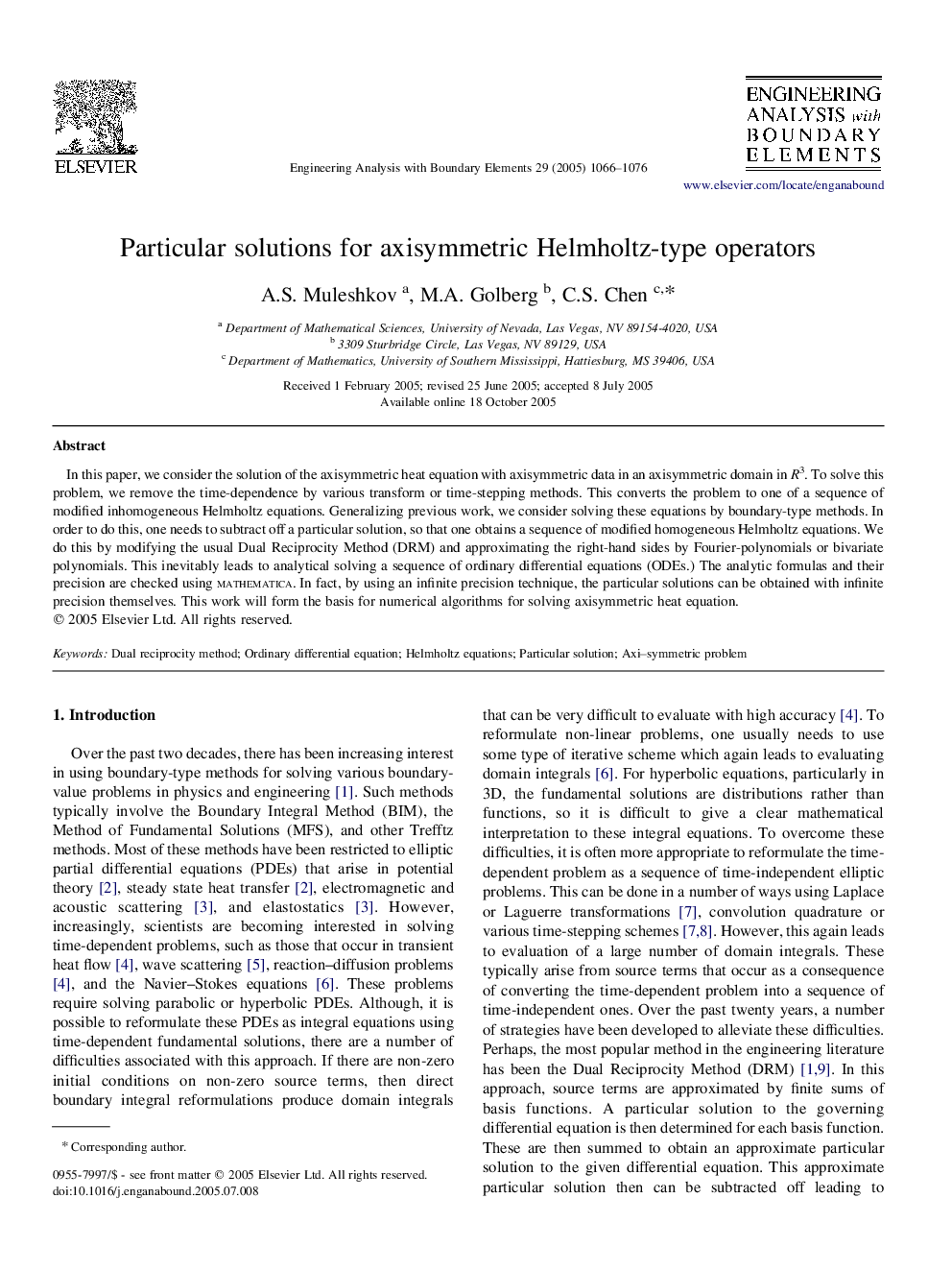| Article ID | Journal | Published Year | Pages | File Type |
|---|---|---|---|---|
| 10354037 | Engineering Analysis with Boundary Elements | 2005 | 11 Pages |
Abstract
In this paper, we consider the solution of the axisymmetric heat equation with axisymmetric data in an axisymmetric domain in R3. To solve this problem, we remove the time-dependence by various transform or time-stepping methods. This converts the problem to one of a sequence of modified inhomogeneous Helmholtz equations. Generalizing previous work, we consider solving these equations by boundary-type methods. In order to do this, one needs to subtract off a particular solution, so that one obtains a sequence of modified homogeneous Helmholtz equations. We do this by modifying the usual Dual Reciprocity Method (DRM) and approximating the right-hand sides by Fourier-polynomials or bivariate polynomials. This inevitably leads to analytical solving a sequence of ordinary differential equations (ODEs.) The analytic formulas and their precision are checked using mathematica. In fact, by using an infinite precision technique, the particular solutions can be obtained with infinite precision themselves. This work will form the basis for numerical algorithms for solving axisymmetric heat equation.
Keywords
Related Topics
Physical Sciences and Engineering
Computer Science
Computer Science Applications
Authors
A.S. Muleshkov, M.A. Golberg, C.S. Chen,
